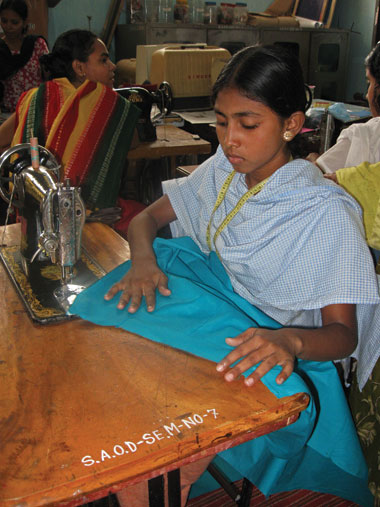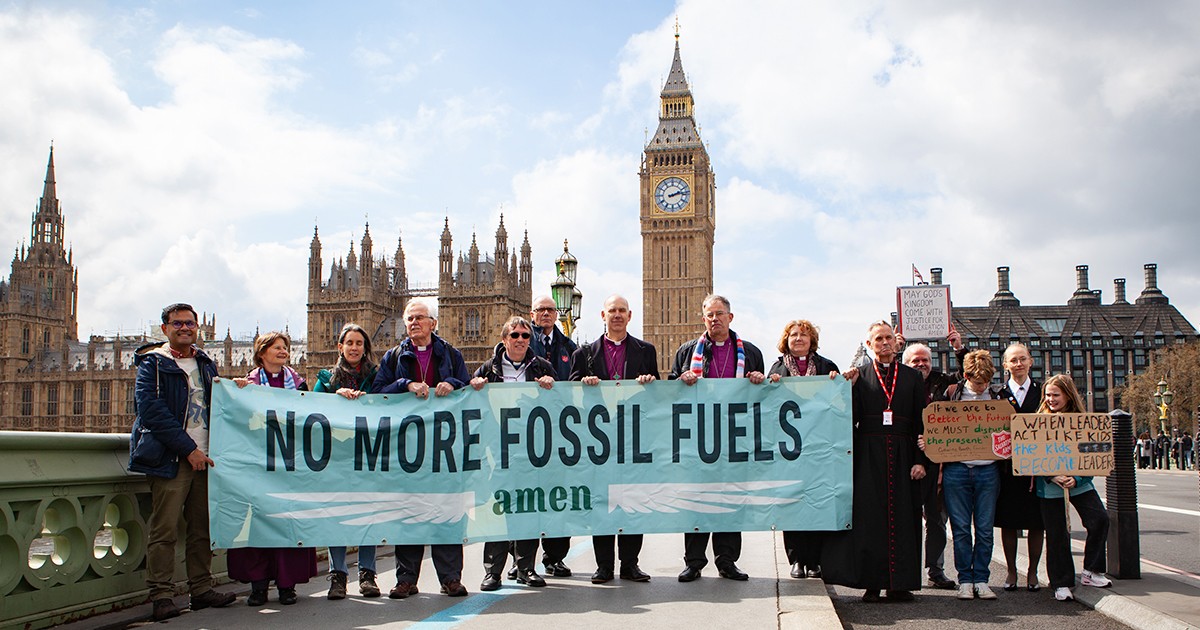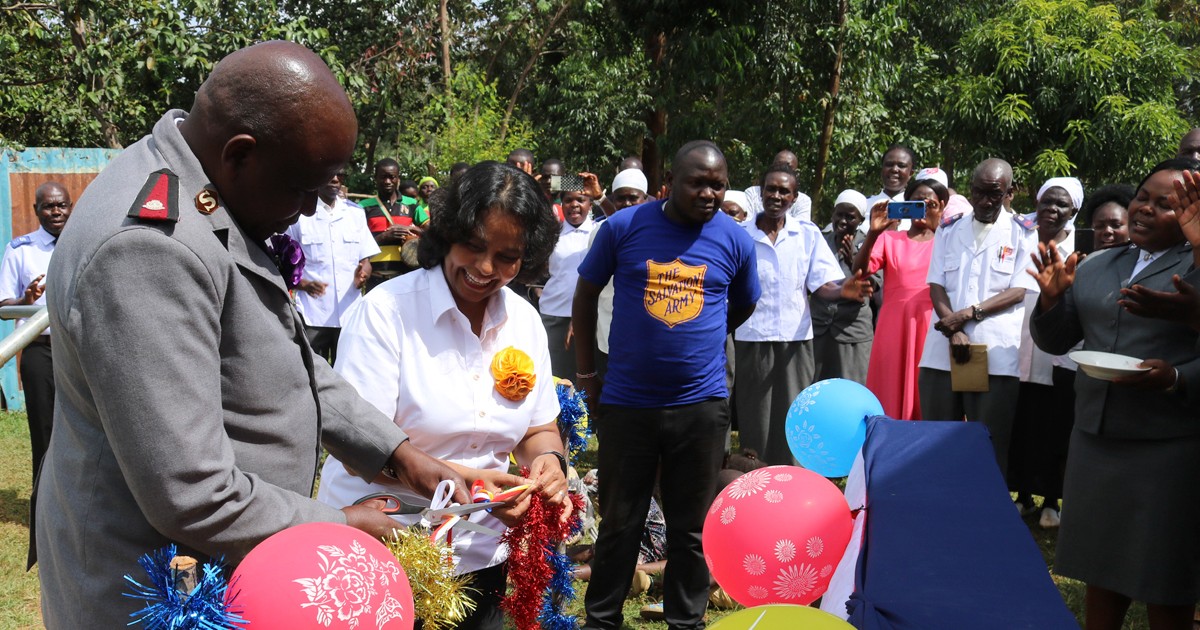Despite the economic upheaval of the past year and a half, few Canadians have to worry about accessing adequate food, clean water, health care or education. There are millions of people around the world, however, who daily struggle just to survive.
Through its work in 119 countries, The Salvation Army is doing its best to make the world a better place. Whether in China, Liberia, Hungary or Bangladesh, the Army offers programs that meet spiritual, physical and emotional needs.
Although the Canada and Bermuda Territory offers financial support to a number of Salvation Army territories and commands worldwide, the 2010 Partners in Mission focus is on Bangladesh. Here are some of the projects The Salvation Army is involved in.

Bangladesh has experienced significant progress in addressing health concerns, with The Salvation Army contributing to the improved health of women and children. Leprosy is no longer the major concern it once was, people are living longer, and the control and prevention of childhood diseases has reduced childhood mortality. However, many challenges remain.
Tuberculosis, malaria and HIV/AIDS continue to pose significant threats. Of countries affected by tuberculosis, Bangladesh is sixth. Every year in Bangladesh, 70,000 people die from this treatable disease. Health specialists are concerned about the emergence of drug-resistant forms of malaria and tuberculosis, especially in children.
Malnutrition continues to be the major cause of death in children. It has been estimated that 75 percent of a child's life in Bangladesh is spent battling diseases related to malnutrition. Take a moment to consider the difference this makes on a child's ability to concentrate at school, play and develop friendships.
To address this need, The Salvation Army has developed school programs that ensure children receive nutritious meals. The Army runs seminars and teaching sessions as part of its literacy programs, organizes saving groups, and offers goat banks and micro-credit programs. Each of these programs empowers families with the skills and opportunities necessary to earn an income to help pay for health care.
Above photo: A health specialist discusses the dangers of malaria with a mother

In the West, we spend very little time each day thinking about the privilege of having water piped into our homes—water that is safe to drink, readily accessible for loads of laundry and hot showers or baths. For most of the world, much of life is centred on the four to five hours spent each day walking to collect water. Often the water is contaminated, compromising the health of families.
Bangladesh is no different than most of the developing world in its concern for a safe, accessible water supply, with one unique twist. In the 1970s, various charitable organizations responded to the water issue with the construction of hundreds of tube wells. Although the tube wells eliminated one problem, they created a new tragedy—arsenic poisoning. Today, more than 30 million people in Bangladesh are exposed to water that has been contaminated with arsenic by hundreds of tube wells. It's been called the biggest mass poisoning in history. Arsenic symptoms vary from blackened fingernails to serious damage to the lungs, liver and kidneys. There are nearly 3,000 arsenic-related cancer deaths each year. Coming to terms with the problem has taken a long time, primarily because the symptoms may not appear for 10 years or more and vary from one person to the next.
The Salvation Army in Bangladesh has responded to this concern through the establishment of an arsenic and iron removal project. As new technologies develop that provide a more cost-effective way to ensure that the water is safe and clear of arsenic contamination, the Army will look for ways to expand its projects to rural communities.
Above photo: An arsenic and iron removal plant
Fair wages and and healthy working conditions are essential in order to ensure the safety and dignity of workers. In Bangladesh, these basic standards are frequently violated in the garment and textile factories. As companies in the West look for ways to offer products that are available at the lowest cost, the temptation is to look to the poorer countries of the world to provide cheap labour. In Bangladesh, there are more than 4,000 garment factories churning out name-brand clothing, employing more than 1.5 million, mostly women.
Frequently referred to as sweat shops, most workers at these facilities earn a mere $14 per month for 14- to 16-hour work days. Although international attention has resulted in a few factories raising their standards and benefits for their employees, most remain overcrowded, lack sanitation and are poorly ventilated, ideal conditions for the spread of tuberculosis. Over the years, a few brave workers have spoken out about the physical and verbal abuse, the long hours of forced labour and delays of up to a month in receiving wages. Those who do speak out are sometimes mistreated and their employment terminated.
Local corps offer support for those who work in this industry. In Canada and Bermuda, we can show that we care by becoming aware of where some of the products we purchase have been made and choosing where possible to support the fair trade industry.
Above photo: Workers at the Sally Ann fair trade factory

As a low-lying delta country, Bangladesh is especially vulnerable to climate change. Global warming has already shifted the country from six seasons to four, with the weather becoming increasingly unpredictable and destructive. Much of the land has become water-logged and inarable. It is estimated that by 2050, millions of people will be homeless due to rising sea levels.
Bangladesh is only one of many poorer nations hard hit by climate change. As Christians, we can make a difference. The words of Micah 6:8 remind us of our calling to “act justly and to love mercy and to walk humbly with your God.”
Every day we make choices that have an impact on our environment. Why do we drive distances that are close to where we live? Why do we buy so much stuff only to throw it away? Why do we replace things that are not broken? Why do we leave lights and appliances on when they are not being used? These choices are simple and basic yet are small steps in reducing our impact on our world.
The Salvation Army is loving people and our earth all around the world. From bio-gas projects to solar stoves, the World Missions office is committed to supporting the poorest and most vulnerable people, raising environmental awareness and working toward responsible use of the earth's natural resources.
Above photo: Rising water levels leave many families homeless
Through its work in 119 countries, The Salvation Army is doing its best to make the world a better place. Whether in China, Liberia, Hungary or Bangladesh, the Army offers programs that meet spiritual, physical and emotional needs.
Although the Canada and Bermuda Territory offers financial support to a number of Salvation Army territories and commands worldwide, the 2010 Partners in Mission focus is on Bangladesh. Here are some of the projects The Salvation Army is involved in.

Health Clinics
Bangladesh has experienced significant progress in addressing health concerns, with The Salvation Army contributing to the improved health of women and children. Leprosy is no longer the major concern it once was, people are living longer, and the control and prevention of childhood diseases has reduced childhood mortality. However, many challenges remain.
Tuberculosis, malaria and HIV/AIDS continue to pose significant threats. Of countries affected by tuberculosis, Bangladesh is sixth. Every year in Bangladesh, 70,000 people die from this treatable disease. Health specialists are concerned about the emergence of drug-resistant forms of malaria and tuberculosis, especially in children.
Malnutrition continues to be the major cause of death in children. It has been estimated that 75 percent of a child's life in Bangladesh is spent battling diseases related to malnutrition. Take a moment to consider the difference this makes on a child's ability to concentrate at school, play and develop friendships.
To address this need, The Salvation Army has developed school programs that ensure children receive nutritious meals. The Army runs seminars and teaching sessions as part of its literacy programs, organizes saving groups, and offers goat banks and micro-credit programs. Each of these programs empowers families with the skills and opportunities necessary to earn an income to help pay for health care.
Above photo: A health specialist discusses the dangers of malaria with a mother

Water and Sanitation
In the West, we spend very little time each day thinking about the privilege of having water piped into our homes—water that is safe to drink, readily accessible for loads of laundry and hot showers or baths. For most of the world, much of life is centred on the four to five hours spent each day walking to collect water. Often the water is contaminated, compromising the health of families.
Bangladesh is no different than most of the developing world in its concern for a safe, accessible water supply, with one unique twist. In the 1970s, various charitable organizations responded to the water issue with the construction of hundreds of tube wells. Although the tube wells eliminated one problem, they created a new tragedy—arsenic poisoning. Today, more than 30 million people in Bangladesh are exposed to water that has been contaminated with arsenic by hundreds of tube wells. It's been called the biggest mass poisoning in history. Arsenic symptoms vary from blackened fingernails to serious damage to the lungs, liver and kidneys. There are nearly 3,000 arsenic-related cancer deaths each year. Coming to terms with the problem has taken a long time, primarily because the symptoms may not appear for 10 years or more and vary from one person to the next.
The Salvation Army in Bangladesh has responded to this concern through the establishment of an arsenic and iron removal project. As new technologies develop that provide a more cost-effective way to ensure that the water is safe and clear of arsenic contamination, the Army will look for ways to expand its projects to rural communities.
Above photo: An arsenic and iron removal plant
 Working Conditions
Working Conditions
Fair wages and and healthy working conditions are essential in order to ensure the safety and dignity of workers. In Bangladesh, these basic standards are frequently violated in the garment and textile factories. As companies in the West look for ways to offer products that are available at the lowest cost, the temptation is to look to the poorer countries of the world to provide cheap labour. In Bangladesh, there are more than 4,000 garment factories churning out name-brand clothing, employing more than 1.5 million, mostly women.
Frequently referred to as sweat shops, most workers at these facilities earn a mere $14 per month for 14- to 16-hour work days. Although international attention has resulted in a few factories raising their standards and benefits for their employees, most remain overcrowded, lack sanitation and are poorly ventilated, ideal conditions for the spread of tuberculosis. Over the years, a few brave workers have spoken out about the physical and verbal abuse, the long hours of forced labour and delays of up to a month in receiving wages. Those who do speak out are sometimes mistreated and their employment terminated.
Local corps offer support for those who work in this industry. In Canada and Bermuda, we can show that we care by becoming aware of where some of the products we purchase have been made and choosing where possible to support the fair trade industry.
Above photo: Workers at the Sally Ann fair trade factory

Climate Change
As a low-lying delta country, Bangladesh is especially vulnerable to climate change. Global warming has already shifted the country from six seasons to four, with the weather becoming increasingly unpredictable and destructive. Much of the land has become water-logged and inarable. It is estimated that by 2050, millions of people will be homeless due to rising sea levels.
Bangladesh is only one of many poorer nations hard hit by climate change. As Christians, we can make a difference. The words of Micah 6:8 remind us of our calling to “act justly and to love mercy and to walk humbly with your God.”
Every day we make choices that have an impact on our environment. Why do we drive distances that are close to where we live? Why do we buy so much stuff only to throw it away? Why do we replace things that are not broken? Why do we leave lights and appliances on when they are not being used? These choices are simple and basic yet are small steps in reducing our impact on our world.
The Salvation Army is loving people and our earth all around the world. From bio-gas projects to solar stoves, the World Missions office is committed to supporting the poorest and most vulnerable people, raising environmental awareness and working toward responsible use of the earth's natural resources.
Above photo: Rising water levels leave many families homeless









Leave a Comment